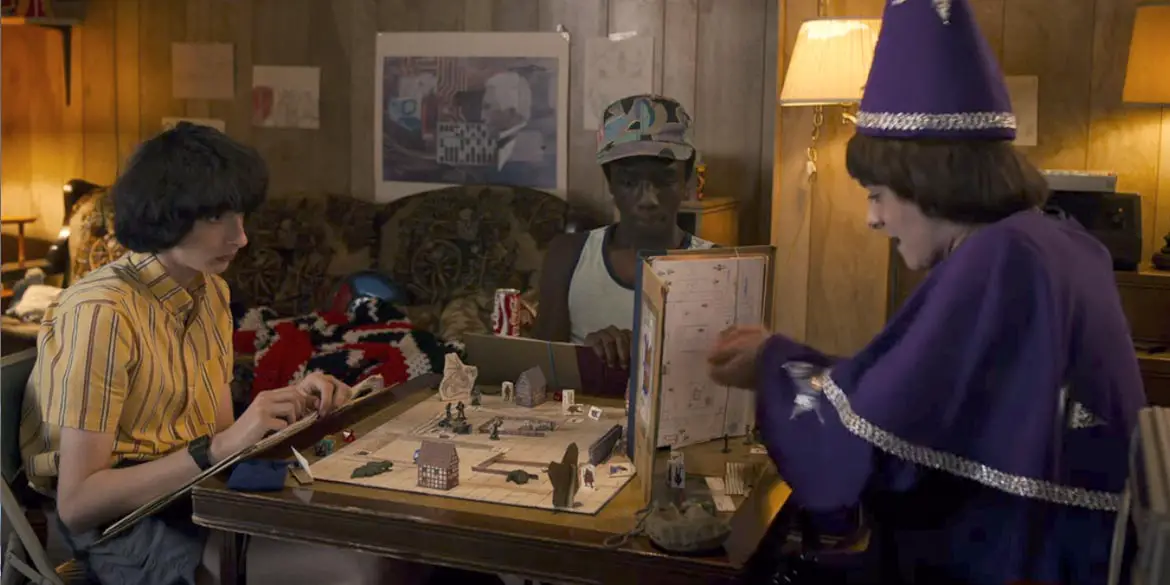So, you've finally caved to your nerdy friends' enthusiastic ramblings about Dungeons & Dragons and decided to give it a go. Congratulations! You're about to embark on a journey filled with epic battles, hilarious roleplay, and probably some dice-rolling disasters. But first, you’ve got to prepare. Don’t worry, even though there’s a lot to learn, your first session is going to be more fun than daunting with just a little prep. And your DM will be there to help every step of the way, don't feel like you need to know all of this or memorize all of this alone. D&D is a team sport.
Step 1: Know the Basics of D&D 5e
If you're new to Dungeons & Dragons 5th Edition (D&D 5e), you'll need to get acquainted with some basics. But don’t freak out—this isn’t like cramming for a final exam. Think of it more like learning the basic rules of a board game, but with dragons. The Player’s Handbook is your best friend here, and if you don’t own it, D&D Beyond offers free access to the core rules and character creation tools.
Key mechanics you should familiarize yourself with include:
- Rolling a d20: This is your main tool for resolving actions. Whether you’re swinging a sword or trying to charm a local merchant, you'll usually roll a 20-sided die (d20), adding any relevant modifiers from your character’s skills or abilities.
- Ability scores: These are the basic stats of your character: Strength, Dexterity, Constitution, Intelligence, Wisdom, and Charisma. Each has a modifier that comes into play when you're rolling to perform actions.
- Saving throws: Sometimes, your character will need to resist effects like fire breath or mind control. These checks are called saving throws, and they’re based on your ability scores.
-
Taking an Action: On your turn, you’ll usually take one action, which can be anything from attacking with a weapon to dashing across the battlefield. Some actions, like Attack or Help, are simple and straightforward, while others, like Disengage or Dodge, offer tactical advantages. After declaring your action, you’ll often roll a d20 to determine success, adding any relevant bonuses from your abilities.
-
Casting a Spell: If you’re playing a spellcaster, casting a spell is one of your main actions. Each spell has a specific effect, whether you’re hurling a fireball or healing a wounded ally. Some spells require you to roll a d20 to hit, while others make your enemies roll a saving throw. To cast a spell, you’ll need to expend a spell slot, which represents your magical energy for the day.
You don’t need to memorize the whole book, but getting a handle on these basics will make your first session run smoother. As always, your DM will tell you what you need to do and when to do it, so don't worry too much, just get a handle on what each phrase means!

Step 2: Build Your First D&D Character
Character creation is a big part of the fun in D&D. You can either create your character manually using a 5e character builder (you can find a great one on D&D Beyond) or consult your Dungeon Master (DM) to see if they have any pre-made characters ready to go. Lots of DMs will also want to help build your character with you, since your character will exist in the DM's world, they may have information you'll need during character creation. Make sure you check with them before diving straight into character building.
When creating your character, you'll need to make a few key decisions:
- Class: Are you a fighter, a rogue, a wizard? Your class defines what kind of abilities you'll have in combat and roleplay.
- Race: This adds unique abilities and traits to your character. For example, elves are quick and perceptive, while dwarves are sturdy and resistant to poison.
- Background: Where did your character come from, and what skills have they picked up along the way? Backgrounds like "soldier" or "outlander" can grant bonus skills and add depth to your roleplaying.
Once you've picked these, you'll roll your ability scores and fill out your character sheet, which will help keep track of your stats and abilities during the game.
Pro Tip: Don’t overthink it! Go with what excites you, whether it’s being a noble-born wizard or a sneaky halfling rogue. There’s no wrong way to play as long as you're having fun.
Step 3: Understand Your Role in the Party
In D&D, no one is going it alone. You’re part of a team (a party), and understanding how your character fits into the group is key to enjoying the game. There are generally four main roles in a D&D party:
- The Tank: Frontline fighters like fighters or paladins, absorbing damage and protecting squishier party members.
- The Healer: Clerics and druids often fill this role, keeping everyone alive.
- Damage Dealer (DPS): Rogues, wizards, and barbarians tend to be big on dealing damage, either through spells or weapons.
- Support/Utility: Bards or wizards often provide buffs, debuffs, and battlefield control.
Don’t stress if you’re not sure what role your character fills yet—it'll naturally develop as you play. And all that said, lots of parties ignore these roles altogether in favor of something more fun or silly. That's the beauty of the game, you get to choose how to play.

Step 4: Pack Your Adventuring Kit (aka Your Dice)
As any veteran D&D player will tell you, dice are a crucial part of your D&D kit. You’ll need a full dice set, including a d4, d6, d8, d10, d12, and the almighty d20. If you don’t have any dice yet, we highly recommend checking out some sweet sets, like the Mystery Dice or the Prism Rose Metal Dice Set.
Having cool dice isn't just for show, though they do make rolling for a critical hit way more satisfying. Whether you're casting spells or trying to negotiate your way out of trouble, your dice will determine your fate, so having a trusty set is key.
If you don't have gaming dice, don't worry! Digital dice are totally fine and a good free option. Don't let not having dice hold you back from playing D&D. Other players almost always have spare dice as well.
Step 5: Know What to Expect at the Table
Your first D&D session will most likely be a mix of introductions, learning the rules, and jumping into the adventure. Here’s what typically happens:
- Session Zero: Many groups start with a "Session Zero," which is all about setting expectations. You and your fellow players will talk about what kind of game you want to play (serious or lighthearted, combat-heavy or roleplay-focused), and the DM will outline any house rules.
- Roleplaying: You’ll be asked to act out your character’s actions and dialogue, but don’t worry if you’re not a theater major. Roleplaying in D&D is more about having fun than putting on a performance. Just talk and behave like your character would.
- Combat: Combat in D&D is turn-based and typically happens on a grid map. You’ll move your character mini or token, roll dice to hit enemies, and use your abilities.

Step 6: Prepare Mentally and Have Fun
Your first session isn’t about mastering the game. It’s about learning the ropes and, most importantly, having fun. Mistakes will happen, but that’s all part of the experience. Even veteran players and DMs make mistakes. Be ready to ask questions, laugh at the absurdity of situations, and don’t be afraid to try bold (or ridiculous) actions.
FAQs
What do I need to bring to my first D&D session?
- Your character sheet or device with internet capability, a set of dice or digital dice, a pencil, and a good attitude. You might also want to bring snacks, because D&D tends to make people hungry.
Do I need to know all the rules to play?
- Absolutely not! Knowing the basics is helpful, but your DM will guide you through the game, and you'll pick up the rules as you go along.
What if I make a mistake during the game?
- Don’t sweat it. D&D is all about learning, and the best way to learn is by playing. Plus, mistakes often lead to the funniest moments!
Can I change my character after the first session?
- Most DMs are flexible with this for new players. If you feel like the character isn’t clicking for you, talk to your DM about making some adjustments.
Wrapping Up
Preparing for your first D&D session might seem overwhelming, but as long as you're ready to roll with the punches (and dice rolls), you're going to have an incredible time. Make sure you’re familiar with the basics, get your character ready, bring some cool dice, and be prepared to have a blast. Welcome to the world of D&D!
Featured Dice Sets
Check out these awesome dice sets to level up your first D&D session:
- Mystery Dice – Perfect for those who love a surprise!
- Transparent Ducky Dice Set – Fun and whimsical, just like your first campaign should be!
- Dragon Eye Dice Set – For a dramatic entrance into your new D&D world!
Happy rolling, adventurer!

